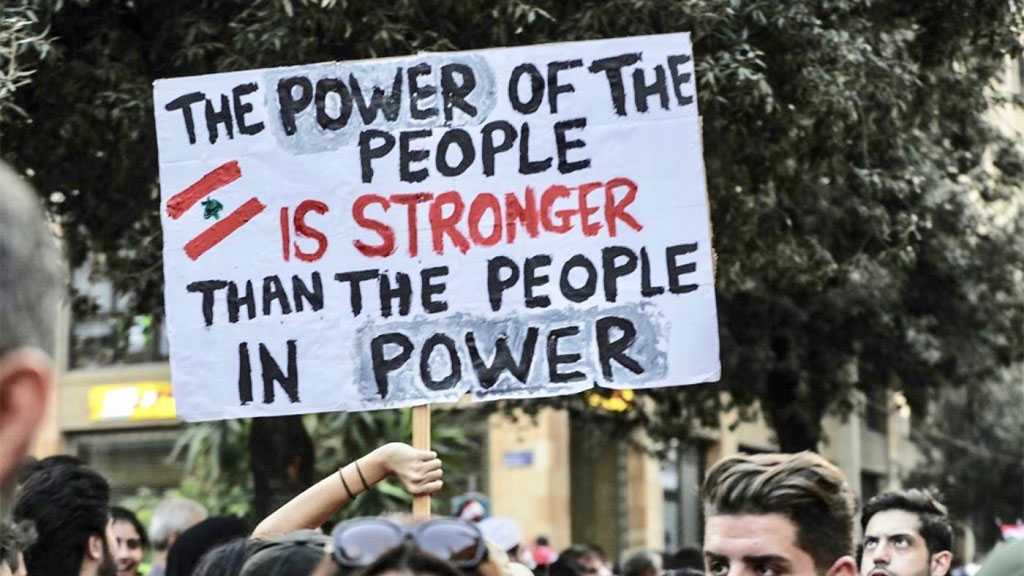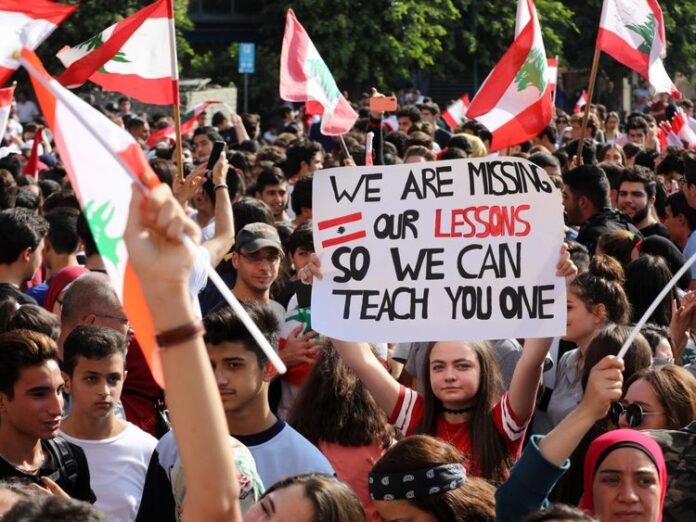As someone who emigrated from Lebanon less than a quarter-century ago to pursue a dream deprived of me and my family, it deeply saddens me as an expatriate to see this hidden gem in the Middle East descend into vestiges of a failed state.

One of the world’s oldest countries, with over 5,000 years of history, has recently found itself at the center of conflict and crisis. One decade ago, its citizen-population was just under 5 million, but now with the largest per-capita population of displaced refugees, its overall population has ballooned to over 7 million (UNHCR, 2018) [1]. In more visceral terms, 1 in 4 people in Lebanon is a refugee. This demographic makeup coupled with the realities of a corrupt political establishment have crept in inciting instability, which has thereby sown seeds of corruption for political interests through nepotistic practices such as Wasta, thus creating job shortages, contributing to a constantly rising unemployment rate of over 30%, and now incubating a brain-drain expatriate crisis amongst youth in Lebanon [2].
Lest we forget, Lebanon is a strategically critical national and geopolitical interest in the region. Its geographic positioning places it as a buffer zone between Israel (to its south) and Syria (to its north); all of which create a refugee crisis of enormous proportion, for a country already deeply divided following its tumultuous 15-year Civil War [3]. Piling onto this burden is the August 4th Beirut Blast; the third-largest non-nuclear blast the world has ever witnessed which shook the very core of the capital of Beirut, both physically and figuratively. These collective crises have only contributed to the destabilization of this fragile democracy into a fractiously divided sectarian homeland. With a population disillusioned by the political and social reality, the most susceptible in the nation will be more likely to being brainwashed and throwing away their lives in the name of terror and radicalization.

Lebanon’s issue is not a shortage of minds. It’s a shortage of resources, jobs, and opportunity that have made the country’s #1 export—Lebanese expatriates, often leaving their families and homeland behind in pursuit of a sustainable future. It has also faced the consequences of geopolitical tension in the Levant, surrounded by a constant state of chaos and foreign interests that keep the country divided. A flagrant source of this division stems from a common practice deeply embedded in Lebanese society, and an omnipresent social norm in the broader Middle East; a practice many find tantamount to nepotism. Wasta is practiced in Lebanon and throughout the Middle East and simply means to use one’s connections and influence to get things done, such as getting hired for or promoted in a job. It is a quasi-caste systemic condition, deeply institutionalized on many levels and which has created a state of passivity that renders the future and success of citizens on a social hierarchy that is by design inequitable, imbalanced, structurally unfair and which engenders a deliberate unjust distribution of resources and opportunity across social strata.

According to a World Bank report, it was found that 54% of the region’s working-age population is unemployed, the majority of which note that Wasta is the main hurdle to getting a job [4]. Wasta is unavoidable in Lebanon, from social services to employment, to university-admissions, to pursuing public service positions, and beyond. Lebanon has a highly educated population, with over a 95% literacy rate. Its problem isn’t that it lacks students with qualifications for employment but that it follows a symptom of corruption. One that pervades nearly every public and private sector implicitly requiring people looking for jobs and careers to have some connection to those at the top. For many Lebanese people, Wasta is a way of life; a reality inescapable across the spectrum of civil society, except by those at the top. According to the Global Corruption Barometer for the Middle East and North Africa, Lebanon has the highest Wasta rate at 54%, followed by Palestine at 39%, and Jordan at 25%.
The brazen practice of Wasta poses a fundamental threat to socio-economic equality, basic human rights, security, development; all of which when amalgamated undermine the levers of democracy. It is a structural issue that has stunted economic growth, development, and re-development, as well as the identity of the people as many perceive it as the sole way to acquire services and basic needs, thus constraining the public’s identity and reducing its collective capacity. Education, skills, and experience are irrelevant in the realm of connections. This institutionalized practice inhibits upward mobility and particularly affects the youth, of which 60% in the region claim that “knowing someone in a high position is critical to getting a job” (ibid).
Now more than ever, Lebanon needs an overhaul; politically, economically, and socially. It needs to enact reforms that dispose of archaic and inept practices like Wasta in favor of a robust education sector that contributes to horizontal social mobility, across Lebanese geographic civil society, and vertically through social stratification. Augmenting the role of the education sector in Lebanon through horizontal social mobility would result in increased opportunities for mobility among the larger population, as well as a stratified role of education through vertical social mobility across all socio-economic levels [5].

The return on this investment in education would include conferring students with degrees that hold competitive value in a competitive job market, as well as increasing the rate of employment among graduates, and refining the nexus between the post-higher education supply chain and development demands, all the while producing jobs that yield economic growth, among all strata. It is critical that the international community, and in particular expatriates like me, who bear the brunt of this archaic practice and who have felt its dire consequences stand up and take-charge through reform in pursuit of a shared future that harnesses the enduring socio-political realities on the ground that have relentlessly challenged the growth of this fragile democracy and its beleaguered economy. Reversing Lebanon’s ‘brain drain’ requires a reformed educational system that can serve as a source of upward mobility; helping revitalize the country’s economy, strengthening its democratic institutions as a means of state-building, and thereby ensuring the nation’s survival by contributing to the viability of the national, regional, and global development processes throughout the Middle East and beyond.
It would be tragic if Lebanon continues down this road of collapse, in what could result in a lost generation. Fortunately, there is still time, though not much. Lebanon still has a pulse, and its resilient spirit continues to underlie its hope for the future, however, it is up to us to be the air that will finally get Lebanon off life-support, as we work to ensure that its best days are not behind but lie ahead. Let’s get to work!

[1] For more information: https://www.unhcr.org/en-us/syria-emergency.html
[2] For more information: https://www.cnbc.com/2020/07/10/already-in-financial-meltdown-lebanon-endures-daily-blackouts.html
[3] For more information: https://www.britannica.com/event/Lebanese-Civil-War
[4] For more information: https://blogs.worldbank.org/arabvoices/wasta-hampering-arab-youth-chances-dignified-life
[5] For more information: https://blogs.worldbank.org/arabvoices/wasta-hampering-arab-youth-chances-dignified-life












